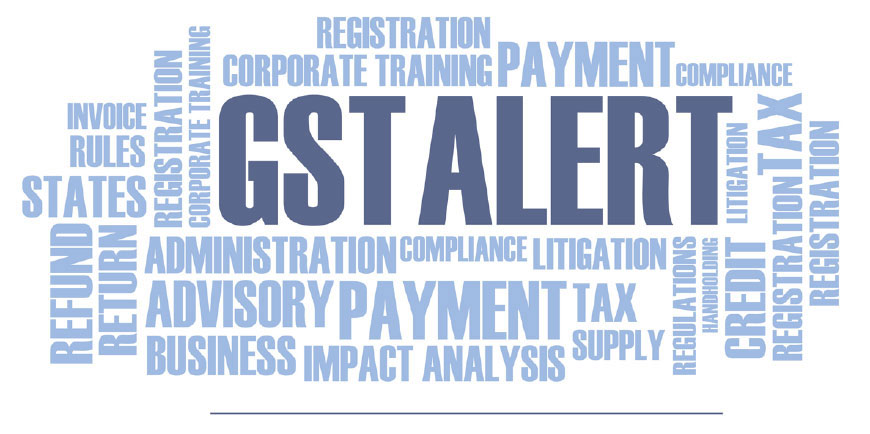- Dated 18th July, 2025

Bombay High Court held that Services to Foreign Group Entities are Export – Refund of Unutilized ITC Allowed
Brief Facts:
The Petitioner filed refund claims of unutilized Input Tax Credit (ITC) on the ground that it had made zero-rated exports of design and engineering services to its group companies located outside India.
The refund claims were rejected by the department on the ground that the Petitioner acted merely as an "agency" of the foreign recipient, thus failing to meet condition (v) of Section 2(6) of the IGST Act, which defines "export of services".
Assessee's Contention: -
The Petitioner is a separately incorporated legal entity in India and cannot be treated as a mere establishment of its foreign group entities. The services provided were on a principal-to-principal basis, as explicitly established by comprehensive intercompany agreements that clearly recognized the Petitioner as an independent contractor. The fixed cost-plus mark-up of 110 percent adhered to recognize transfer pricing norms and prevailing industry practices, and thus does not indicate the existence of any agency relationship. Furthermore, all five conditions prescribed under Section 2(6) of the IGST Act for qualifying as an export of services, including the often-disputed clause (v), were duly satisfied. In support of this, CBIC Circular No. 161/17/2021-GST dated 20.09.2021 and Maharashtra Trade Circular No. 26T of 2021 have clarified that supplies made to foreign related parties or group companies are to be treated as export of services.
Department's Contention: -
The Department contended that the Petitioner was acting as an agent of the foreign company within the meaning of Explanation 2 to Section 8 of the IGST Act. It was argued that the foreign parent exercised significant financial and managerial control over the Petitioner, thereby undermining its status as an independent entity. The cost reimbursement model, coupled with a fixed profit margin, was characterized as resembling commission structures typically associated with agency relationships. Further, the fact that the Petitioner's books of accounts were accessible for audit by the foreign parent was cited as evidence of control comparable to that of an establishment of the foreign recipient in India. On this basis, the Department asserted that the Petitioner and the foreign company constituted "establishments of a distinct person" under the IGST framework, thereby disqualifying the services from being treated as exports under clause (v) of Section 2(6) of the IGST Act.
Decision:
The Bombay High Court ruled in favour of the Petitioner, making several critical observations. It held that to qualify as an agent under Section 2(5) of the CGST Act, a person must supply goods or services on behalf of another, which necessarily requires the presence of a third party. In the present case, only two parties were involved - the Petitioner and its foreign affiliate - thereby ruling out the existence of any agency relationship. The agreement clearly designated the Petitioner as an independent contractor, and not as an agent or employee. The Court further noted that the cost-plus mark-up and audit provisions were standard commercial arrangements and could not, in themselves, establish an agency relationship. It emphasized that the Petitioner and the foreign entities were distinct legal persons, and the transactions between them could not be treated as dealings between establishments of the same person. In support, the Court relied on the CBIC Circular No. 161/17/2021-GST dated 20.09.2021 and the Delhi High Court's judgment in Xilinx India, both of which were held to be binding and squarely applicable with the instant case. Accordingly, the Court directed the department to process the refund along with statutory interest within four weeks, holding that the services qualified as exports under Section 2(6) of the IGST Act.
BTA's Comment:
This judgment fortifies the legal position that Indian subsidiaries or group entities rendering services to their foreign affiliates are distinct legal persons, not mere extensions or agencies. The Court has emphatically clarified that commercial arrangements, even with cost-plus pricing and operational oversight, do not ipso facto create an "agency" under GST law.
The ruling also reinforces the binding nature of departmental circulars, and curtails arbitrary denials of refunds where facts and contracts clearly support export classification.
Case Reference: Sundyne Pumps and Compressors India Pvt. Ltd. Versus Union of India (2025) 31 Centax 387 (Bom.) [16-06-2025]
Author: Piyush Sarawagi
Edited by: Shaily Gupta
Contact Us
BT Associates
Call: 033 2534-2717 /
033 6451-8729
Mail: enquiry@btassociate.com






